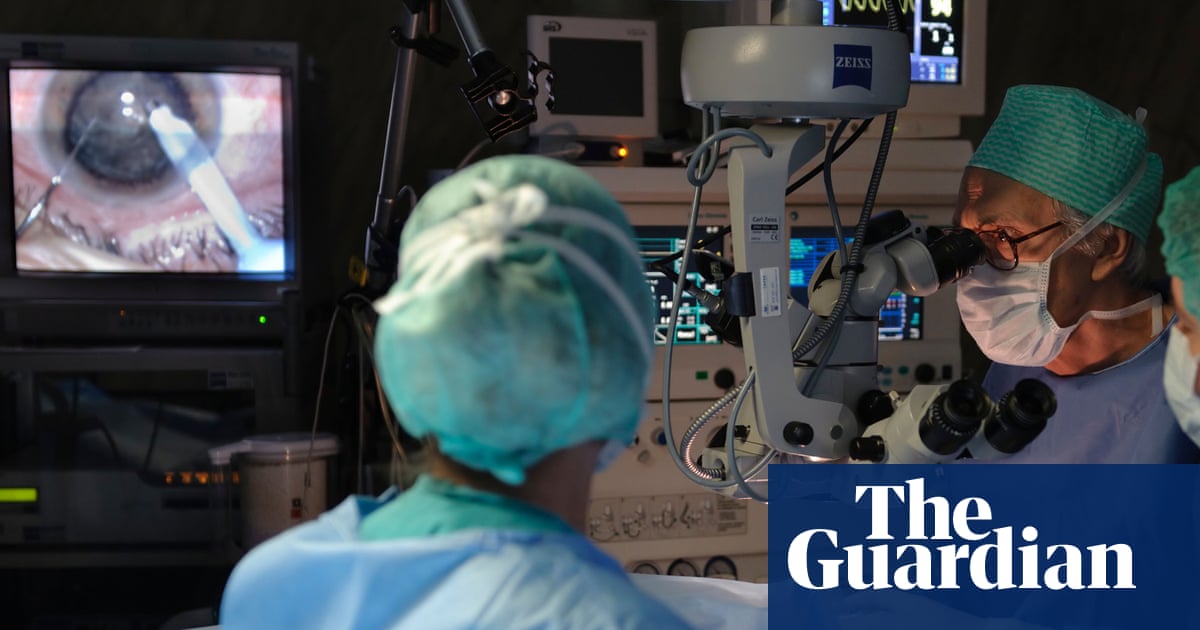Profits made from treatingNHSeye patients by five private firms are so large they equal those made by the 100 with private finance initiative (PFI) hospital contracts, research shows.
The disclosure has led to calls for ministers to cap what can be “eye-watering” levels of profit made by private operators when they take over key public services.
Research by the Centre for Health and the Public Interest (CHPI) thinktank found the five main companies providing cataract removals and other eye treatments to the NHS inEnglandmade an estimated £169m in profit collectively during 2023-24 – the same as in the 100 PFI deals.
David Rowland of the CHPI, who carried out the research, said: “For years the biggest scandal ofwasted money in the NHS has been PFI,with huge amounts of taxpayer money leaking out of the health system and into the profit accounts of private firms.
“But our research shows that the outsourcing of NHS eye care is an even bigger scandal. Just five eye care companies have generated the same profits in one year as the companies running all 100 NHS PFI schemes.”
The five are Newmedica, Optegra, SpaMedica, CHEC and ACES.
CHPI’s analysis also disclosed that:
-
The five’s average profit margin for NHS work is 32%, and in one case 43%, compared with the 10% generated by PFI firms
-
£68m of the quintet’s combined £536m paid to them by the NHS went on paying the interest on high-cost loans private equity investors used to buy the firms
Rowland added: “There are truly eye-watering amounts of money leaking out of the NHS in the form of profits going to private companies who have taken over the running of NHS eye care–£169m buys you a hell of a lot of healthcare and this money was set aside by parliament to treat the sick, not to generate huge profits or pay interest on private equity loans.”
Rowland has calculated that £12.4m of Greater Manchester ICB’s budget in 2023-24 became profits for the five firms. The equivalent sums were £11.7m with the North and East Cumbria ICB, £11.2m with Cheshire and Merseyside ICB and £8.1m with Lancashire and South Cumbria ICB.
Labour MP Stella Creasy, a campaigner on PFI, backed the CHPI’s call for ministers to impose a cap on the profits private operators of public services can make, as has happened with children’s social care services, to clamp down on excessive profiteering.
Creasy said: “Every penny matters with public services. It’s now urgent that we need to get to grips with the profits private companies make when exploiting public services.
“My colleagues will be shocked to hear that these companies are making even more money than [with] PFI contracts.
“When you cap what you can make from a military or children’s social care contract, but not with schools and hospitals, clearly there are lessons to be learned.”
The Department ofHealthand Social Care (DHSC) is looking into concerns raised by NHS England that private cataract firms have inflated their costs, undertaken operations that were not clinically appropriate and offered incentives to opticians to refer patients to them, the Sunday Times reported last month.
A DHSC spokesperson said: “While the independent sector has a role to play in tackling the waiting list backlog, we will not tolerate any overpriced or sub-par care.
“All NHS patients must receive safe and high-quality care, whether being treated by private providers or directly by the NHS.”
